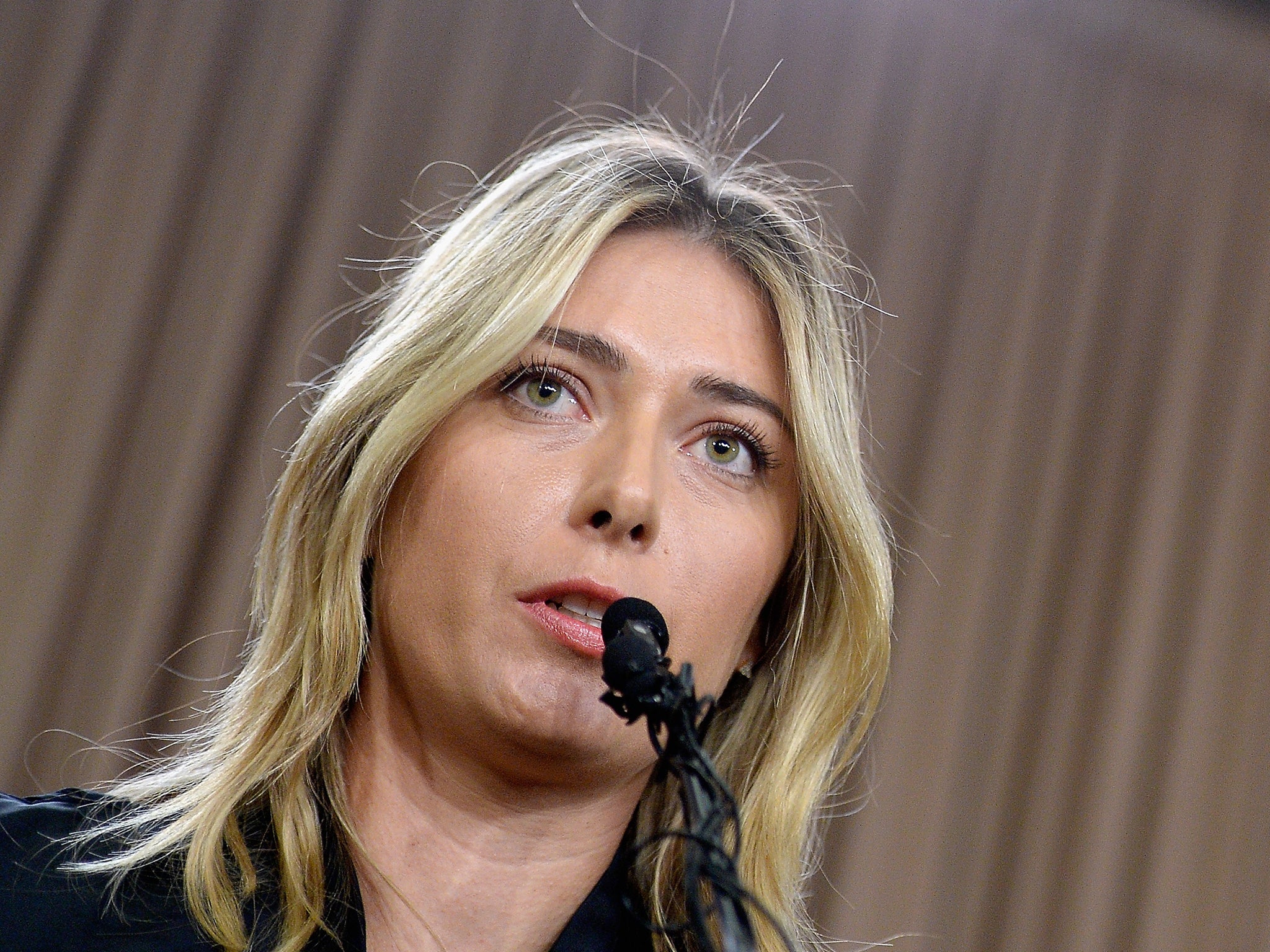Maria Sharapova given two-year ban from tennis for meldonium use
The 29-year-old Russian took the banned Latvian-made drug meldonium, a commonly used heart disease treatment which increases stamina and endurance

Your support helps us to tell the story
From reproductive rights to climate change to Big Tech, The Independent is on the ground when the story is developing. Whether it's investigating the financials of Elon Musk's pro-Trump PAC or producing our latest documentary, 'The A Word', which shines a light on the American women fighting for reproductive rights, we know how important it is to parse out the facts from the messaging.
At such a critical moment in US history, we need reporters on the ground. Your donation allows us to keep sending journalists to speak to both sides of the story.
The Independent is trusted by Americans across the entire political spectrum. And unlike many other quality news outlets, we choose not to lock Americans out of our reporting and analysis with paywalls. We believe quality journalism should be available to everyone, paid for by those who can afford it.
Your support makes all the difference.Maria Sharapova, the five-time tennis Grand Slam champion, has been handed a two-year ban after failing a drugs test at the Australian Open in January.
The 29-year-old Russian took meldonium, a commonly-used heart disease drug, for a period of time which overlapped the 1 January 2016 cut-off date, when it was added to the World Anti-Doping Agency’s (Wada) banned list.
At an anti-doping hearing in London on Wednesday, Sharapova was informed by the International Tennis Federation (ITF) that she would be banned for two years as meldonium is a metabolic modulator which increases stamina and endurance.
Sharapova, who won Wimbledon in 2004, has avoided the maximum four-year ban after Wada admitted earlier this year that scientists could not determine how long the drug remained in the user’s system after it had been taken.
It is reported that Sharapova will now appeal against the ban, which has been backdated to 26 January 2016, at the Court of Arbitration for Sport.
“It is very important for you to understand that, for 10 years, this medicine was not on Wada's banned list and I had been legally taking that medicine,” she said in March.
Former world number one Sharapova admitted to taking meldonium for 10 years after being recommended to do so by a family-approved doctor on medical grounds.
All athletes were informed that the drug had been added to the banned list at the beginning of the calendar year but Sharapova insists she only knew the drug by the name mildronate.
The ITF confirmed that Sharapova failed the drug test on the same day as her quarter-final defeat by Serena Williams in Melbourne. She was informed of the failed test via letter in March.
A statement said: "An Independent Tribunal appointed under Article 8.1 of the 2016 Tennis Anti-Doping Programme has found that Maria Sharapova committed an Anti-Doping Rule Violation under Article 2.1 of the Programme and as a consequence has disqualified the affected results and imposed a period of ineligibility of two years, commencing on 26 January 2016."
Join our commenting forum
Join thought-provoking conversations, follow other Independent readers and see their replies
Comments